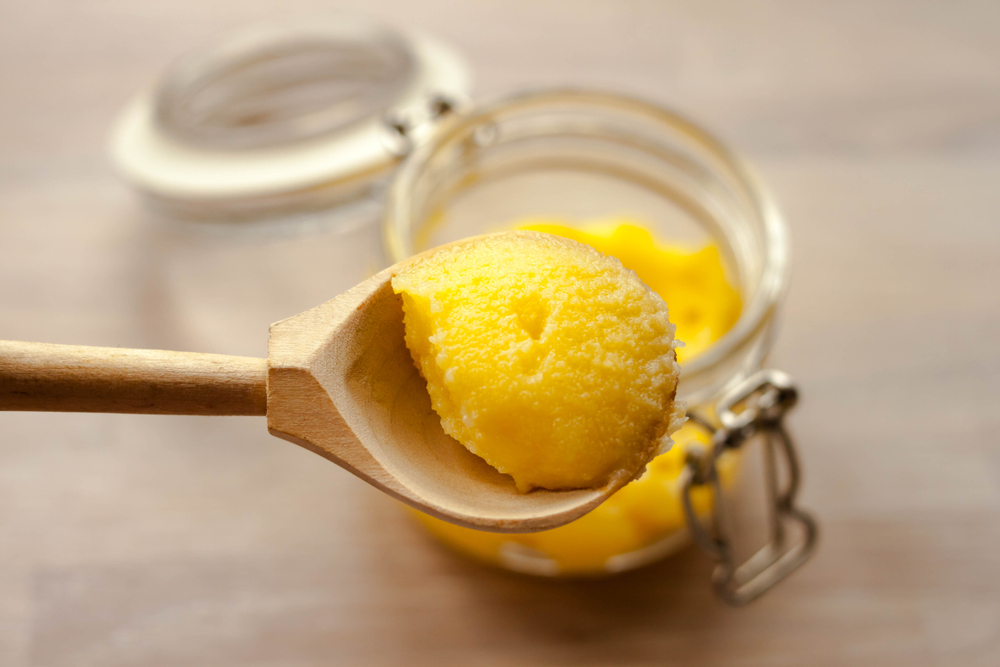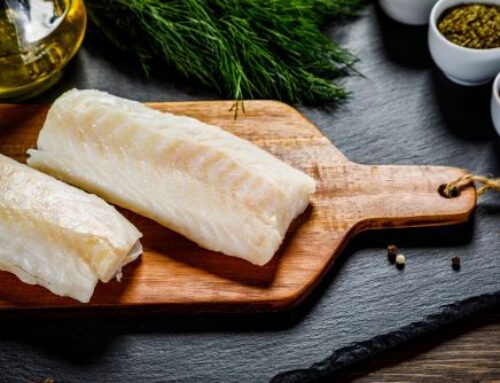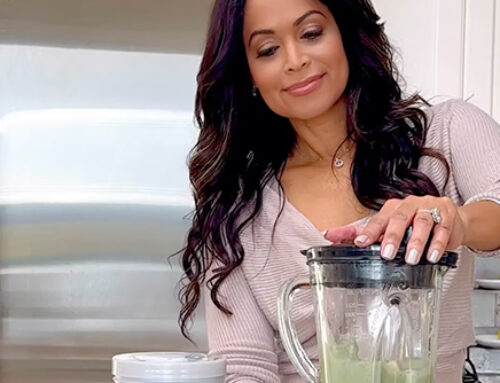We all occasionally crave the rich, creamy taste of butter, even though we eat it only in moderation. When you’re spreading butter on toast, you probably want to use real butter for the familiar taste. However, in cooking processes, ghee can be a versatile substitute. Whether you’re sautéing veggies, baking, or adding flavor to a recipe, ghee has advantages and disadvantages compared to butter.
If you’re cognizant of your butter intake, use this brief guide to understand the difference between ghee and butter and which you should be using. Depending on the situation, ghee may be the alternative you’re looking for.
What is Ghee?
We need to be on the same page with what ghee is before talking about its pros and cons. Basically, ghee is butter that has been clarified. This means that the butter has been heated, separating the fat from the liquid. With the milk product removed from the butter, the remaining oil solidifies and becomes ghee.
Food culture in India and the Middle East commonly uses ghee instead of butter. Read on to learn if the pros outweigh the cons for you.
Pros of Using Ghee
Compared to butter, ghee is harder to burn since the fat composition is different. When heated, it doesn’t produce as many toxic aftereffects as other oils. So, ghee is safer to burn than most of your cooking oils and easier to use than butter.
For those who are lactose-intolerant (or just sensitive), ghee’s makeup should be a huge plus. Since the milk fat has been removed, people with sensitivity to lactate would do better using ghee in their cooking, even though it should be noted that it isn’t completely dairy-free.
Cons of Using Ghee
Ghee doesn’t taste exactly like butter since it contains less dairy, so those who are looking for the rich, creamy taste of real butter may need to adjust or switch between them.
Ghee contains slightly more calories and fat than butter, including saturated, monounsaturated, and polyunsaturated. However, it’s important to remember that a range of healthy fats is necessary to maintain healthy heart function and weight regulation. So, this is barely even a con – it’s more like an observation.
A Note About Butter
Butter’s reputation has been waning since health food culture hit the mainstream. But there’s one thing that needs to be said: in moderation, butter is fine for you! A healthy mix of fats is required to keep your cholesterol in check, which is why fat-free diets often result in more problems than they fix.
Butter has no trans fats, which are the unhealthy fats in many oils that raise your risk for metabolic disorders. These fats are why margarine is actually much worse for you than butter. But ghee has no trans fats in it either, so in the case of making healthy diet changes, don’t listen to a pushy health craze that tells you that ghee is a magic alternative. The differences are very slight.
Choosing Between Butter and Ghee
Butter and ghee are very similar, including a comparable fat and calorie count. Depending on your lifestyle and tastes, butter and ghee can both be used! There’s no “one size fits all” solution to consuming fats from your cooking oils. Whether you use butter or ghee, they represent some of the healthiest alternatives out there.
With balanced fat profiles, both can be used in moderation to make vegetables taste delicious, or as a snack on toast or crackers. I like using them sparingly and switching them off. Butter has that nostalgic, creamy taste that ghee can’t quite match. But ghee is easier to cook with, burning less frequently while still adding the same great taste to sautés.
The Takeaway
It’s important to remember that a balanced diet includes a diverse array of healthy fats and as few trans fats as possible. Both butter and ghee can give you these fats in your cooking and produce fewer toxic chemicals when they melt than some cooking oils.
The fat and calorie content are similar, so your taste and lifestyle preferences should dictate your choice more than anything else. I like switching between them so I can cook well and use the lactose-reduced ghee to my advantage. But I also keep butter around for when I just need that deliciously creamy (and familiar) taste.





Leave A Comment